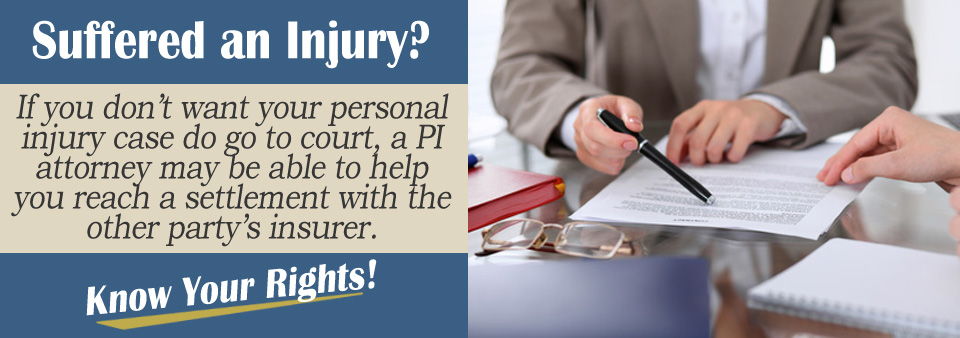Due to the huge number of car crashes resulting to injuries and even deaths, personal injury (PI) claims also abound. However, only 4% to 5% of these claims go to court. The rest of the PI cases are settled out-of-court. After all, the bottom line is for the damages to be compensated.
If this can be done out of court, the lesser the expense. Court proceedings will also necessitate time and effort on all concerned.
Moreover, in situations where the fault is quite obvious and the parties have insurance coverage, settling the problem pre-trial is faster and less complex. If you are involved in a similar circumstance, the following tips on what you should do if you do not want the case to go to court may be a big help.
Tip#1: Write a Convincing Demand Letter
If you do not want your PI claim to reach court, it is vital that you draft a very convincing, clear and concise demand letter to the other party or his insurer that will encourage them to agree with the terms contained in it. Basically, your letter should set out the circumstances of the accident, including the following:
- Details about the injuries you sustained
- Medical treatment you already received
- All expenses you paid for and will need to still pay for
- Future medications for your injuries
- And lost wages, if any
This demand letter will serve as a stage for an out-of-court settlement transaction to start in earnest. It is therefore your best chance to present your case to the other party or his insurance company and get a fair settlement without the need for a lawsuit.
However, to be able to create a good demand letter, you should be knowledgeable about all relevant information regarding the accident, your injury and the other details that you want to impart to the other party. Most importantly, you should have strong support to everything you say in your letter, such as the following:
- Copy of the police report;
- Photos of the injuries and damages to property;
- Medical bills/receipts;
- Hospital test results on the injury;
- The value of your claim based on your supporting documents.
It is advisable to declare a value of the claim that is higher than what you expect the other party will agree to. This will allow some room for negotiation of the final settlement.

Tip#2: Wait for an Offer
After considering your demand letter, the insurer of the other party will normally send you an initial offer. Take note that this first offer is usually much lower than what you ask for, with the hope that you will accept. However, the insurer expects you not to accept it. This opens the door for further negotiations.
To signify your rejection of their “low ball” offer, you need to prepare a reply that clearly states that you are declining it. However, you need to provide reasons for your rejection, such as, its insufficiency to cover the medical bills and further treatment, and the pain and suffering it caused you.
While you need to be precise and insistent in your reply, you should also maintain politeness and ethics. You can then end your reply with a counter-offer to their first offer. This can be lower than your own initial offer but definitely higher than theirs.
Tip#3: Accepting the Offer
Once the other party’s insurer and you are able to reach a settlement value that you will both agree on, it is now time to accept the offer. This is normally done through a back and forth negotiation or mediation. It is best to do this in writing but if the offer is made by the other party verbally, it is wise to write them back confirming the final offer.
Before an insurer will release you the check payment to cover your claim, you will likely be asked to sign a release. This is a legal and binding document that renders you incapable of filing any other future claim relating to your injury.
Therefore, it is necessary that before you sign a release, you are certain that you have no further injuries that may likely come up as a result of the accident.
Tip#4: Get Assistance from a PI Attorney
Even if a PI claim is settled out of court, the assistance of a PI attorney will prove valuable. He can make the entire exercise easy for you if you prefer. He may be the one to compose the demand letter and prepare all needed documents to strengthen your claim.
More importantly, experienced personal injury attorneys are experts in settling cases amicably. Hiring one is one sure step to achieving a satisfying PI claim settlement without the need to go to court.